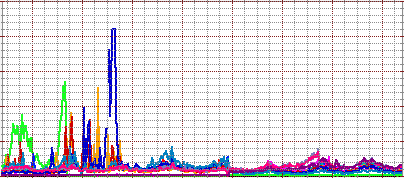Over the past week here at wordpress.com, we have been doing some experimentation with various software load balancers. In the latest test, we are using Pound with a weighted round-robin algorithm between all of the web servers in a given datacenter. The individual weight takes into account hardware differences and any other tasks that server may be doing. So, a dual processor server would receive more traffic than a single processor machine. The tests have been going really well so far. Once the testing is complete and we have decided on a solution, I will post about the various things we tried, pros and cons of each, etc. The graph below shows the load averages of the various web servers over a one week period. I’ll let you guess when the test began 🙂 Pretty dramatic difference, eh?

Leave a comment